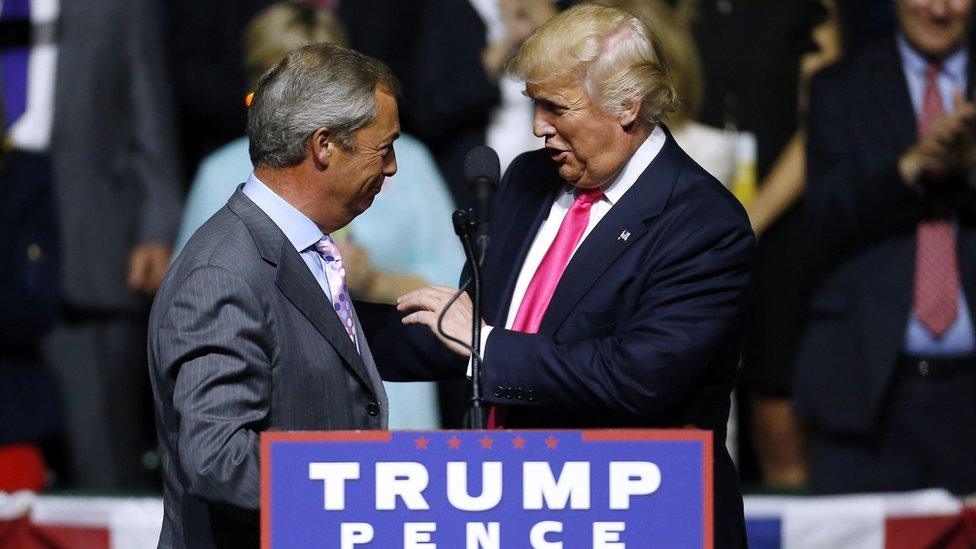Nigel Farage? How does the UK appoint ambassadors?
- Published
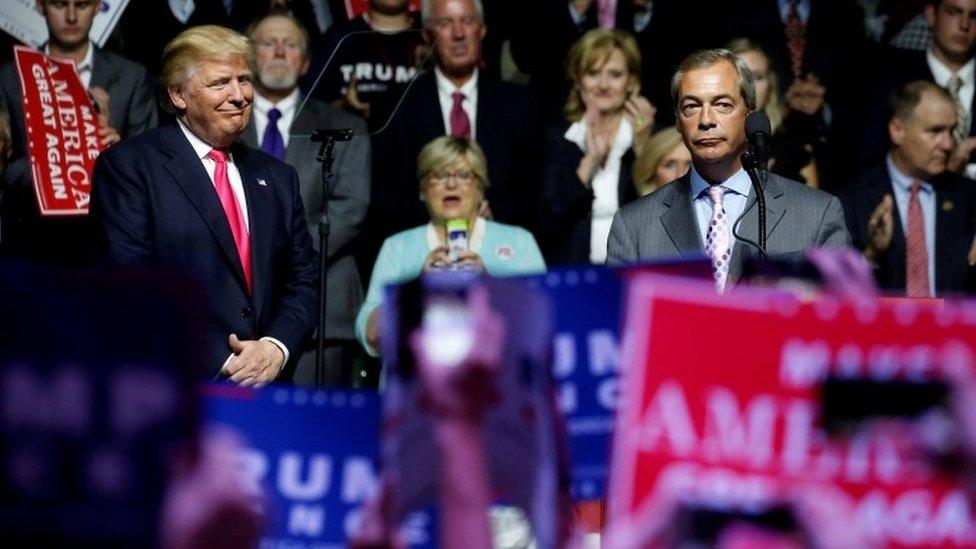
US President-elect Donald Trump has suggested UKIP leader Nigel Farage should be the UK's next ambassador in Washington. But how are leading diplomats chosen?
Washington - along with postings to the UN, Paris and the EU - is among the most coveted jobs in the Diplomatic Service.
To the constant refrain - particularly from politicians in London - that the "special relationship" is in rude health, life as UK ambassador in Washington is a round of parties, functions, high-level meetings and trips to the White House. Not to mention getting paid £184,999 a year.
It would seem the ideal job for a big figure, one not shy of courting public attention. And Nigel Farage - interim leader of UKIP, friend of President-elect Donald Trump - would certainly fit that description.
Mr Trump has tweeted his backing: "Many people would like to see @Nigel_Farage represent Great Britain as their Ambassador to the United States. He would do a great job!"
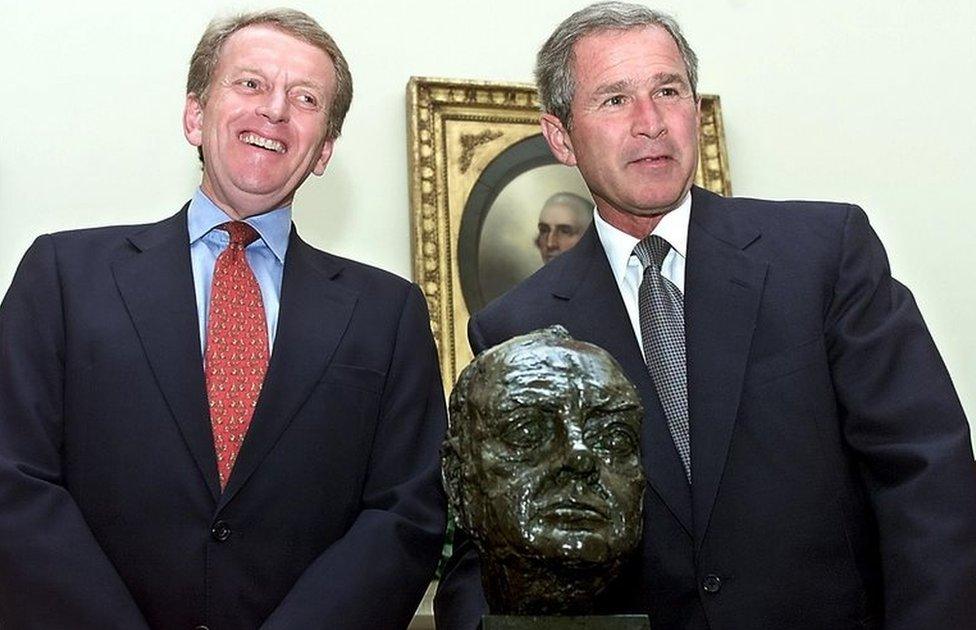
Sir Christopher Meyer (here with President George W Bush) says he had to play "hardball" during negotiations with the US government
The UK government is, to use diplomatic language, not entirely in accord. It has ruled out the idea, stating that current ambassador Sir Kim Darroch is "very good" and will be in Washington "for some years".
Perhaps the most surprising element of Mr Trump's suggestion, for those reading about it in the UK, is that Mr Farage - a politician not a diplomat - could be considered for the job.
Sir Christopher Meyer, the UK's ambassador in Washington from 1997 to 2003, says: "The systems are very different. In the US many of the ambassadors are donors and people who have helped the president's election campaign. This is normal in the American system, but not in the UK."
The American Foreign Service Association, external says that, of the ambassadorial appointments during Barack Obama's presidency, 69.7% have been career diplomats and the remaining 30.3% have been political figures. Most of what are known as the "plum" jobs tend to go to the latter group.
The current US ambassador in London, Matthew Barzun, was an internet entrepreneur who acted as national finance chairman for Mr Obama's 2012 re-election campaign.
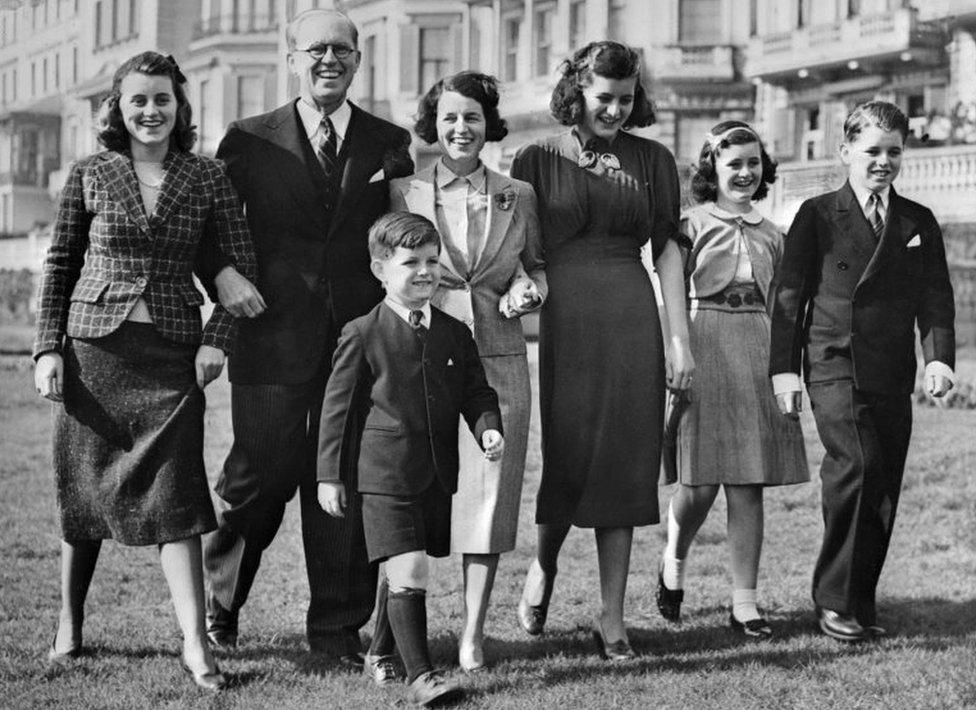
Joseph Kennedy, father of President John F Kennedy, was US ambassador in London during the 1930s
"I'm not absolutely opposed to the idea of political appointees in the UK too," says Sir Christopher. "Often they are clever people with fresh ideas. As long as they have got good staff who understand the system, it can work very well."
There is no UK rule against political appointees as ambassadors. David Ormsby-Gore, a former Conservative minister, did the Washington job from 1961 to 1965. Labour supporter and former New Statesman editor John Freeman did the same from 1969 to 1971.
In 1977, concerns of nepotism, external were raised when TV presenter and Times economics columnist Peter Jay became the UK's ambassador in Washington. He was the son-in-law of the then Prime Minister, James Callaghan.
"That was particularly controversial at the time," said Richard Whitman, senior visiting fellow at the foreign affairs think tank Chatham House.
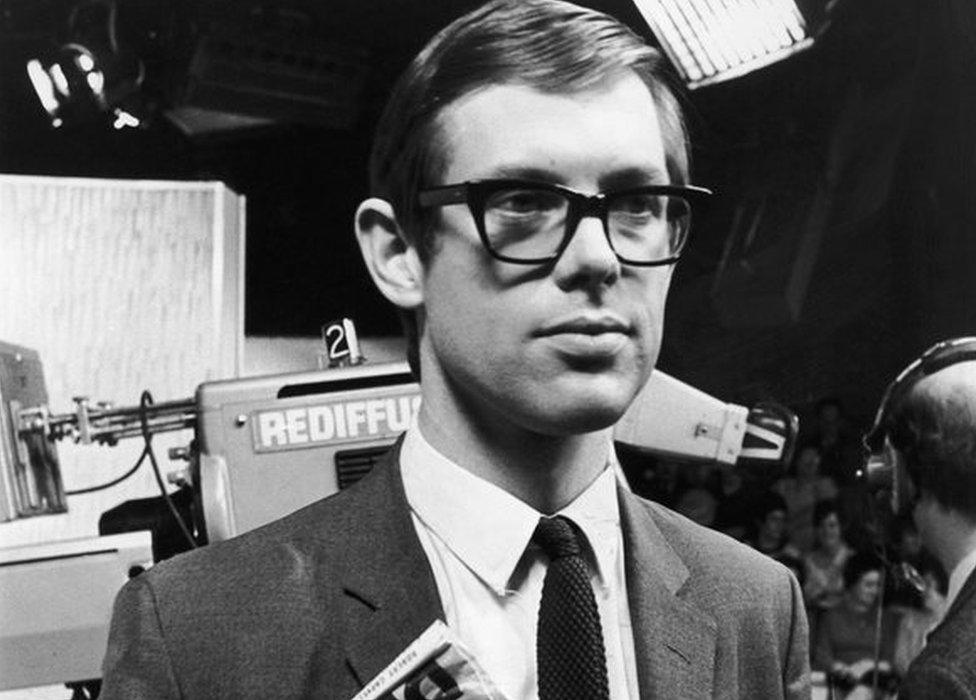
Peter Jay's appointment raised some concerns
In the UK, potential ambassadors, the vast majority of them career diplomats, are recommended by the Foreign Office and have to be approved by Buckingham Palace, as they have a dual role of representing the government and the Crown.
It's a "fairly straightforward" process, says Prof Whitman. "You can see someone who looks like they're going to be an ambassador as they come through the Diplomatic Service. The type of training they are given, usually across the civil service and in Number 10, getting a really wide experience, marks them out.
"What you want, particularly for the Washington job, is people who are not just very good technical diplomats but very attuned politically."
This means sending back snippets of information you "wouldn't see in the newspapers", gained from formal meetings and informal chats, Prof Whitman adds. Ambassadors require high-level security vetting too.
Although political appointees are more common in the US, the Senate has to confirm those selected. This can result in rejections and delays.
Prof Whitman suggests the UK system, obviously less public, is also less confrontational. "The government wouldn't propose someone who wasn't acceptable or appointable to the Palace," he says. "I would describe ambassadors' development as a career-long vetting."
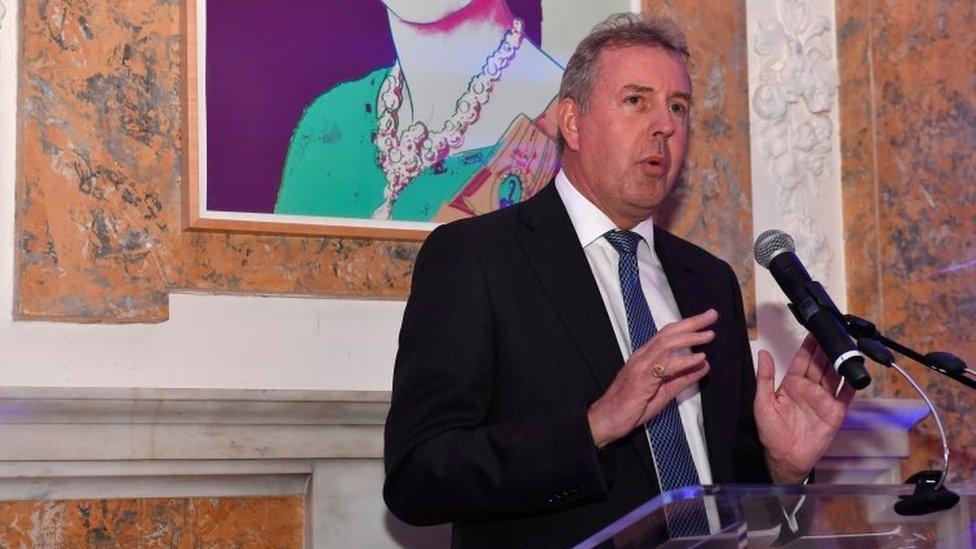
The UK government says Sir Kim Darroch will remain in Washington "for some years"
The US has a tradition of appointing celebrities to ambassadorships. In fact, Mr Trump's first wife, Ivana Trump, has suggested her ex-husband should pick her to oversee diplomatic ties with the Czech Republic, where she was born and raised. "They could not send a better US ambassador to Prague," Czech President Milos Zeman reportedly told her in a statement, external.
The former child star Shirley Temple - dubbed "Little Miss Miracle" by President Franklin D Roosevelt for raising morale during the Great Depression - served in Ghana from 1974 to 1976.
But Sir Christopher, who received languages training during his long civil service apprenticeship and has suggested a good diplomat needs "a quick mind, a hard head, a strong stomach, a warm smile and a cold eye", thinks his more focused training did him good.
Despite the closeness of UK-US ties, "you often have to play hardball," he says. "A political appointee can work but what can't happen is allowing a foreign government to dictate who should be your ambassador. That's unacceptable."
- Published22 November 2016
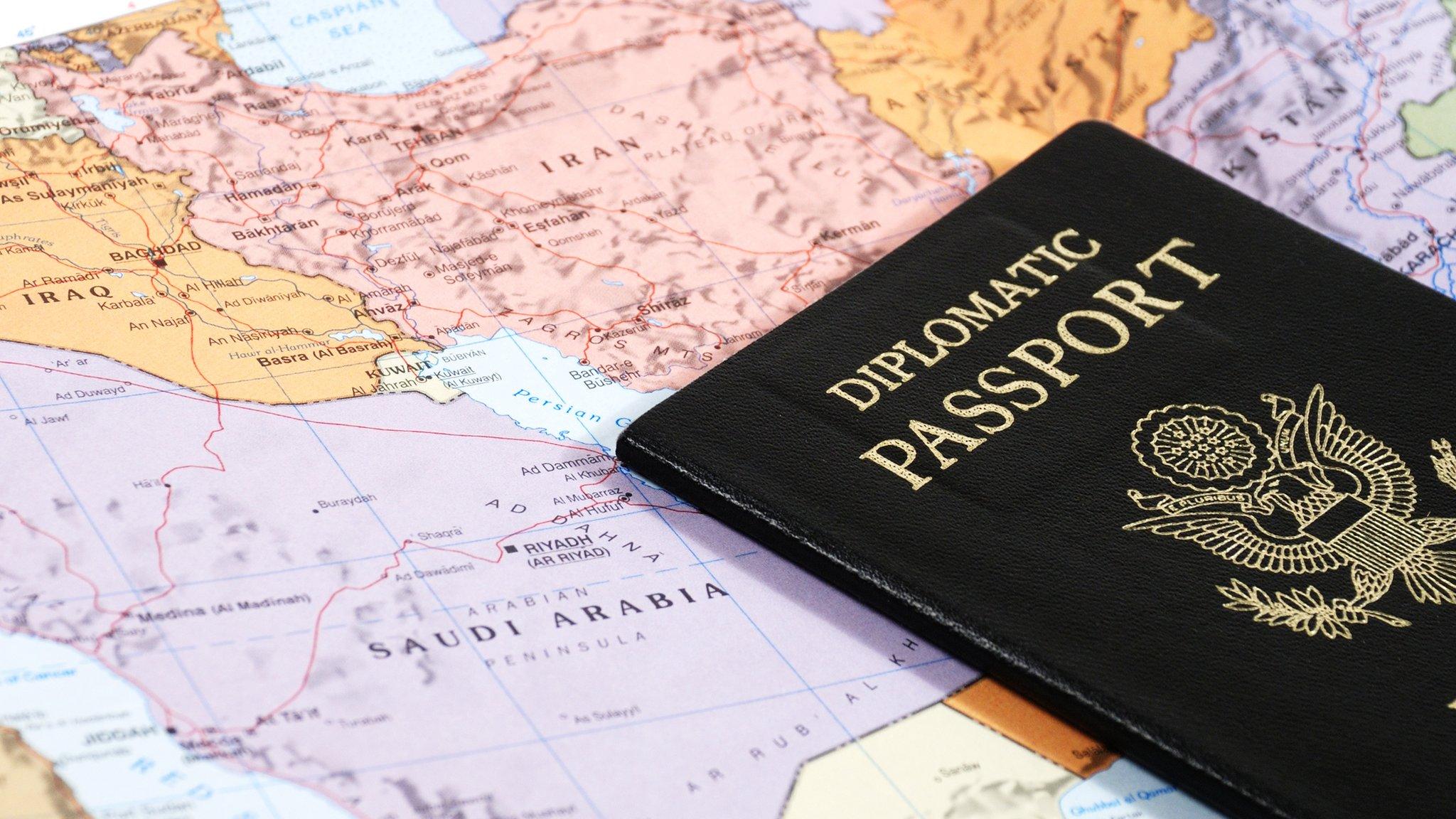
- Published22 November 2016
